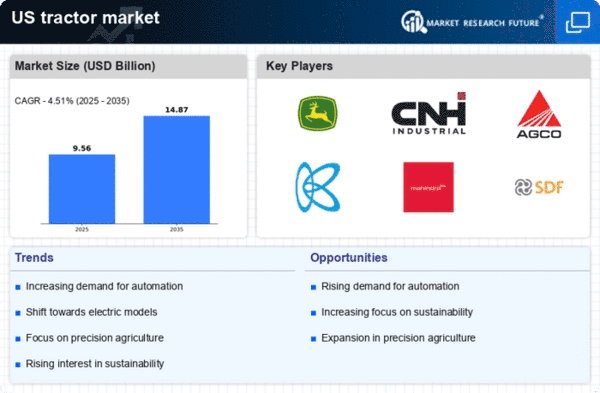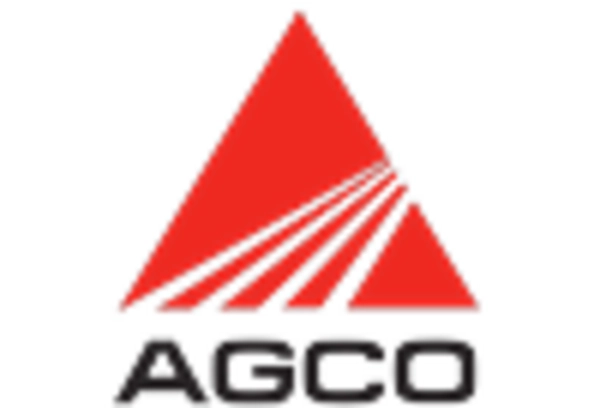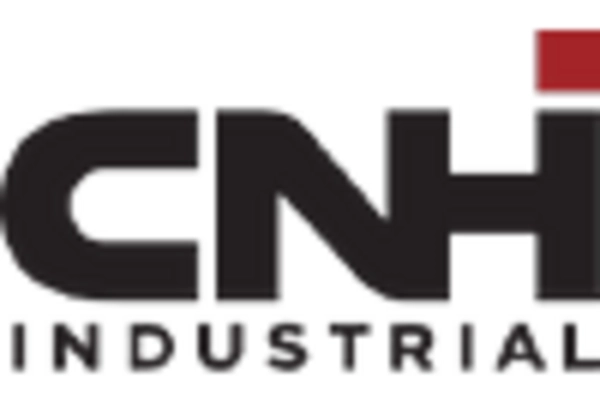Government Support and Subsidies
Government policies play a crucial role in shaping the tractor market in the US. Various federal and state programs provide financial assistance and subsidies to farmers for purchasing modern agricultural equipment. In 2025, it is estimated that government incentives contributed to a 15% increase in tractor sales, as farmers took advantage of these financial benefits to upgrade their machinery. This support not only enhances the affordability of tractors but also encourages the adoption of more efficient and environmentally friendly technologies, thereby driving growth in the tractor market.
Expansion of Agricultural Exports
The tractor market is also influenced by the expansion of agricultural exports from the US. As global demand for US agricultural products increases, farmers are compelled to enhance their production capabilities, often leading to increased investments in modern tractors. In 2025, agricultural exports are projected to rise by 8%, prompting farmers to upgrade their equipment to meet this demand. This trend is likely to drive growth in the tractor market, as enhanced production capabilities necessitate the acquisition of more advanced and efficient machinery.
Increased Focus on Farm Mechanization
The trend towards farm mechanization is significantly impacting the tractor market. As labor shortages become more pronounced in the agricultural sector, farmers are increasingly turning to mechanized solutions to maintain productivity. In 2025, the mechanization rate in US agriculture is projected to reach 60%, leading to a corresponding rise in tractor demand. This shift is particularly evident in regions where traditional farming practices are being replaced by more efficient, technology-driven methods. Consequently, the tractor market is likely to benefit from this ongoing transition towards greater mechanization.
Rising Demand for Precision Agriculture
The tractor market is experiencing a notable shift towards precision agriculture, driven by the increasing need for efficiency and productivity in farming operations. Farmers are increasingly adopting advanced technologies such as GPS and IoT to optimize their agricultural practices. This trend is reflected in the growing sales of tractors equipped with precision farming capabilities, which accounted for approximately 30% of total tractor sales in the US in 2025. As farmers seek to maximize yields while minimizing resource use, the tractor market is likely to see sustained growth in demand for high-tech machinery that supports these initiatives.
Emerging Electric and Hybrid Tractor Technologies
The tractor market is witnessing a gradual transition towards electric and hybrid technologies, reflecting broader trends in sustainability and energy efficiency. As environmental concerns gain prominence, manufacturers are investing in the development of electric tractors that offer reduced emissions and lower operating costs. By 2025, it is anticipated that electric and hybrid tractors will constitute around 10% of total tractor sales in the US. This shift not only aligns with the growing demand for sustainable farming practices but also positions the tractor market for future growth as these technologies become more mainstream.

















